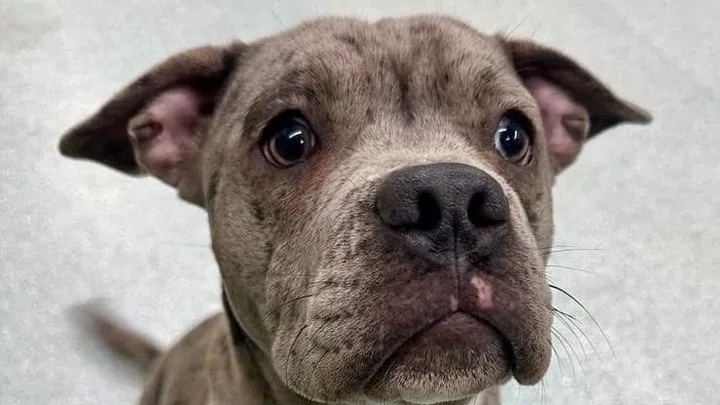30 Oct 2025
Officials believe the laws should be made easier to interpret despite campaigners calling them ‘rotten’.

Max was deemed a banned breed.
A council in Northern Ireland has revealed it incurred more than £50,000 in costs as campaigners successfully fought to save a pitbull dog from euthanasia.
The Lisburn and Castlereagh authority has called for new measures to make it easier to apply breed specific legislation (BSL), despite insisting the case was handled properly.
But the animal’s new owner said his example showed the present laws, which are already widely opposed by veterinary and legislative groups, are “rotten”.
A court ruling earlier this month deemed the dog, named Max, was of a banned type, following four separate assessments carried out since he was first placed in kennels by the council as a puppy last December.
But it was also determined that he posed no danger to the public and could be rehomed subject to conditions including neutering and the use of a muzzle when in public.
The new report, which was presented to a meeting this week, said the case had cost the council more than £53,000 in all.
Most of that was spent on legal and kennelling expenses, with veterinary fees accounting for just £315.
It added that the authority would “lobby the relevant government department for changes in BSL and areas that need amended to ease its interpretation”.
However, it also argued the court’s decision had justified its handling of the case and insisted it never intended that Max should remain in kennels for as long as he did.
But his new owner, Molly Piper, whose family run the Mid-Antrim Animal Sanctuary, told the Local Democracy Reporting Service that he could have been another “statistic” without the campaign to free him, which saw more than £10,000 raised through an online appeal.
She said: “He’s the perfect reminder of why this legislation is rotten and not fit for purpose.”
The council report also argued that registered keepers should be held liable for dogs that are microchipped in their name after the individual who was listed as Max’s owner at the time he was found claimed to have sold him.